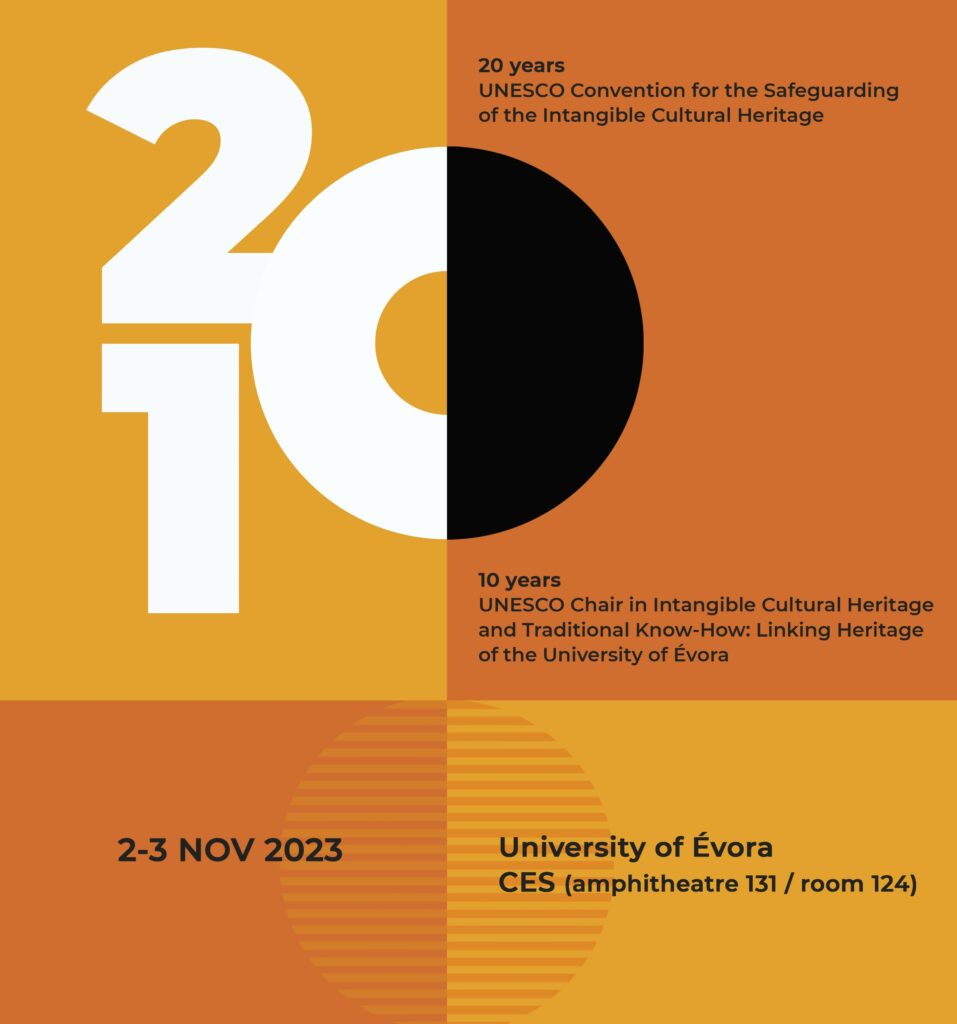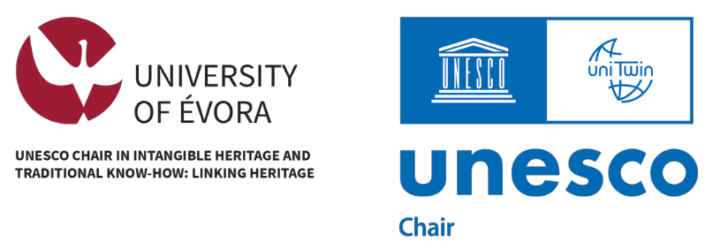Safeguarding the Intangible Heritage: policies and practices for the next decades

In 2023 it will be 20 years since the approval of UNESCO’s Convention for the Safeguarding of the Intangible Cultural Heritage and 10 years since the creation of the UNESCO Chair in Intangible Heritage and Traditional Know-How: Connecting Heritage, based at the University of Évora.
To mark this double anniversary, the UNESCO Chair is organising an International Congress at the Colégio do Espírito Santo, University of Évora, on the 2nd and 3rd of November of 2023.
The UNESCO’s Convention for the Safeguarding of the Intangible Cultural Heritage (2003) is a fundamental guideline for those working with intangible cultural heritage (ICH), whether in terms of research and intervention with communities, or the design of public policies, having triggered not only the inventorying of ICH expressions (representative lists) and safeguarding measures, but also the social, cultural and economic valorisation of these expressions and their holders. But the commemoration of the 20 years of the Convention should be more than a mere celebration; it should be, above all, a moment to reflect on the policies and practices, as well as review the impact on communities or individuals who have seen their ICH recognised.
Article 2 of the Convention defines ICH as: “the practices, representations, expressions, knowledge, skills – as well as the instruments, objects, artifacts and cultural spaces associated therewith – that communities, groups and, in some cases, individuals recognize as part of their cultural heritage. This intangible cultural heritage, transmitted from generation to generation, is constantly recreated by communities and groups in response to their environment, their interaction with nature, and their history, and provides them with a sense of identity and continuity, thus promoting respect for cultural diversity and human creativity. For the purposes of this Convention, consideration will be given solely to such intangible cultural heritage as is compatible with existing international human rights instruments, as well as with the requirements of mutual respect among communities, groups, and individuals, and of sustainable development.”
Twenty years after these statements and considering also the United Nations Sustainable Development Goals (SDGs), it is important to rethink the role of the Convention and ICH in a world that in 2023 faces several challenges inherent to binomials such as “safeguard – sustainability”, “continuity – recreation”, “rights – duties”, “policies – practices”.
This international congress aims to promote not only a critical review of the two decades of the Convention but also a discussion on the challenges of ICH policies and practices for the next decades.
The objective of this Congress is also to discuss the Chair’s contributions to the implementation of the Convention in terms of studies, methodologies, field interventions, good practices, support to public policies, and to the holders of traditional know-how expressions.
For further information and contact:
congressocatedra23@uevora.pt

Important Dates
Call for papers: Until 31 May
Notification of acceptance of proposals: By 15 July
Registration and fee payment: From July 15th to September 30th
VENUE
The venue for the conference is University of Évora – Colégio do Espírito Santo (Espírito Santo College), located in the historic centre of the city of Évora (Alentejo), in southern Portugal.









